Peregrine Falcon Fiercely Defending Her Nest Wins Bird Photography Competition
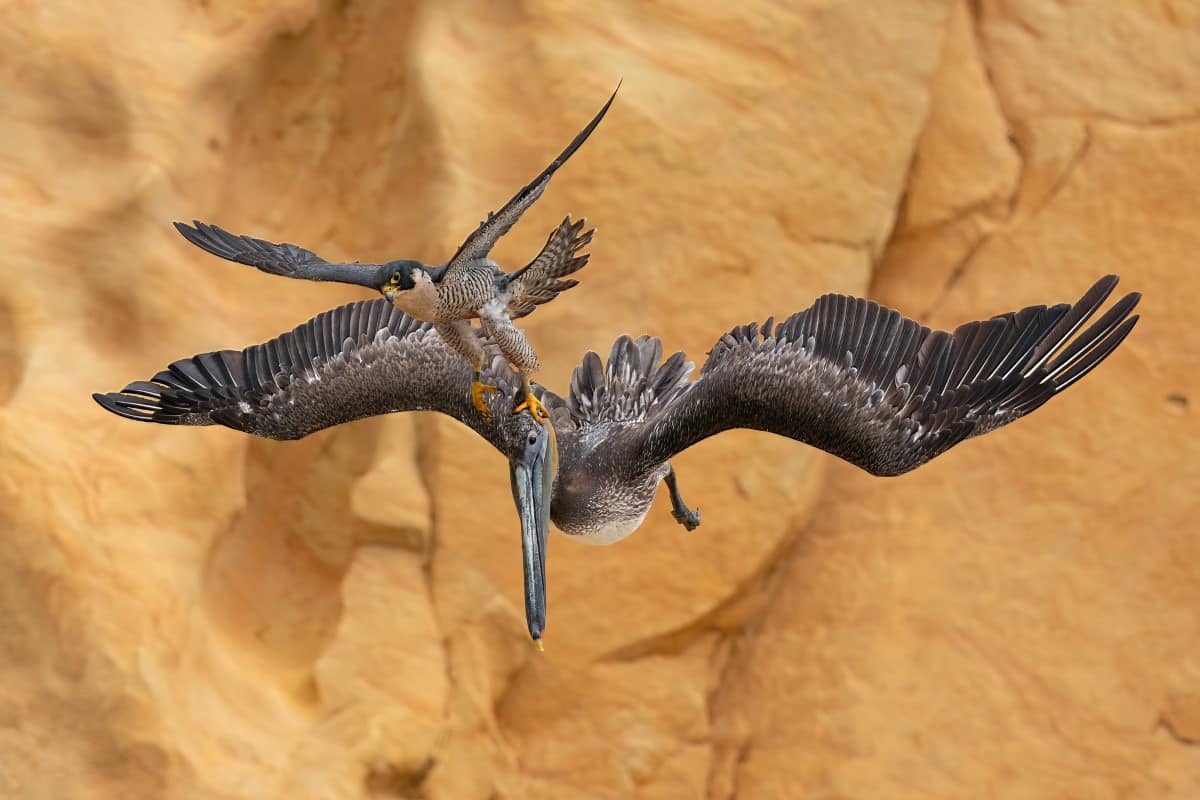
“Grab the Bull by the Horns” by Jack Zhi, United States. Bird Photographer of the Year 2023 and Gold Award Category: Bird Behavior.
Species: Peregrine Falcon Falco peregrinus and Brown Pelican Pelecanus occidentalis.
Location: Southern California, United States.
“During the breeding season, a female Peregrine Falcon fiercely protects her young, attacking anything that comes near the nest. For four years, I attempted to capture these rare moments of her attacking large Brown Pelicans with incredible speed and agility. The high-speed chase made it challenging to capture a close-up shot with a long lens. The falcon’s precision was amazing as it struck at the pelican’s head.”
A striking photo of a female peregrine falcon fiercely defending her young was the top winner of the 2023 Bird Photographer of the Year contest. Selected from over 20,000 images, this bird of prey attacking a brown pelican that was too close to her nest earned American photographer Jack Zhi the title of Bird Photographer of the Year.
“For four years, I attempted to capture the rare sight of the female falcon attacking large brown pelicans with incredible speed and agility,” shares Zhi. “I love the eyes of the pelican in this image—surprised and scared. The action was fast and over in the blink of an eye. But I’ll remember that moment forever.”
Zhi's dynamic image was one of many exceptional photographs entered into this year's contest, which covers eight categories for adults, as well as special Video, Portfolio, and Conservation awards. Young photographers are also encouraged to enter, with 17-year-old German photographer Anton Trexler taking home the title of Young Bird Photographer of the Year.
All of the winning images are published in a hardcover coffee-table book that makes a wonderful gift for any bird lover. This year's collection is available for purchase online. Check out some of our favorite Gold and Silver award winners of the 2023 contest and get your entries ready, as the 2024 is already taking submissions.
Here are the winners of the 2023 Bird Photographer of the Year competition.
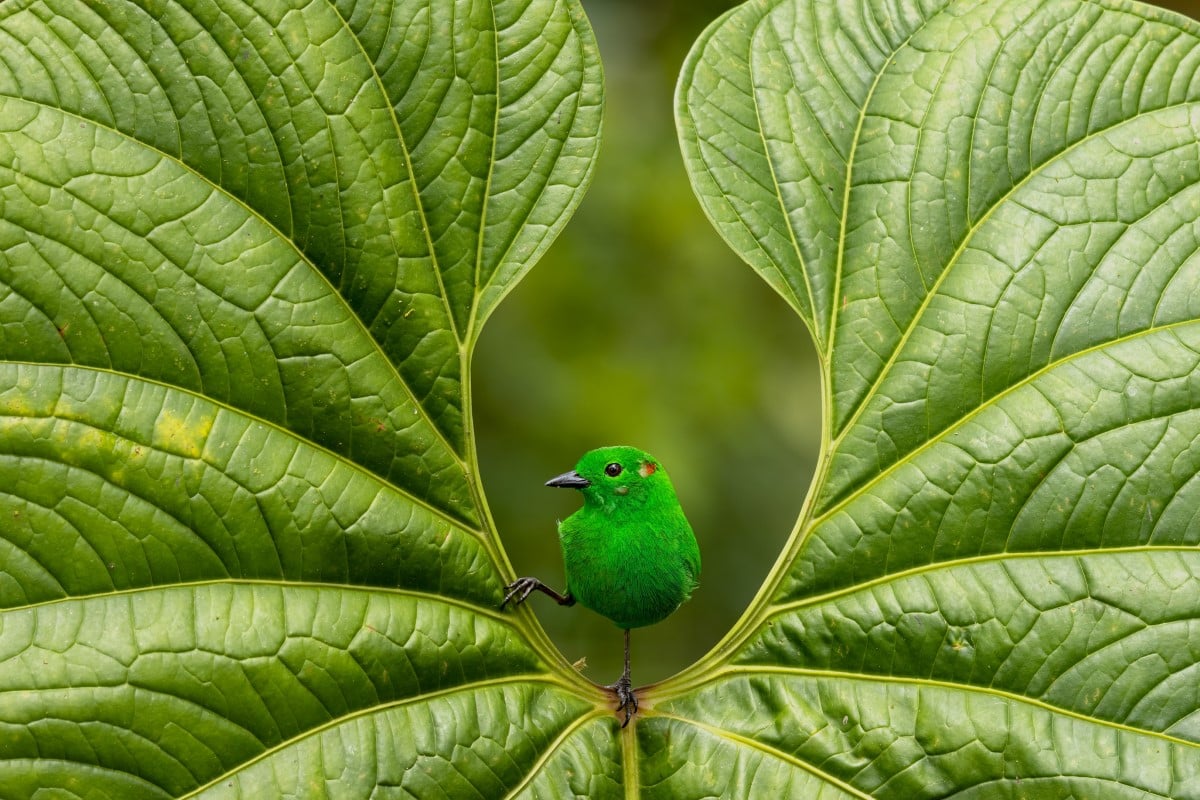
“Glistening-Green” by Nicolas Reusens, Spain. Gold Award Category: Best Portrait.
Species: Glistening-green Tanager Chlorochrysa phoenicotis.
Location: Mashpi Amagusa Reserve, Ecuador.
“Venturing into the tropical forest, I was excited to spot the rare Glistening-green Tanager. After hours of waiting, I saw the vivid green bird on a perfect heart-shaped leaf. Its shimmering feathers reflected a dazzling array of colors. I captured every detail, grateful for this magical moment amid the lush jungle backdrop.”
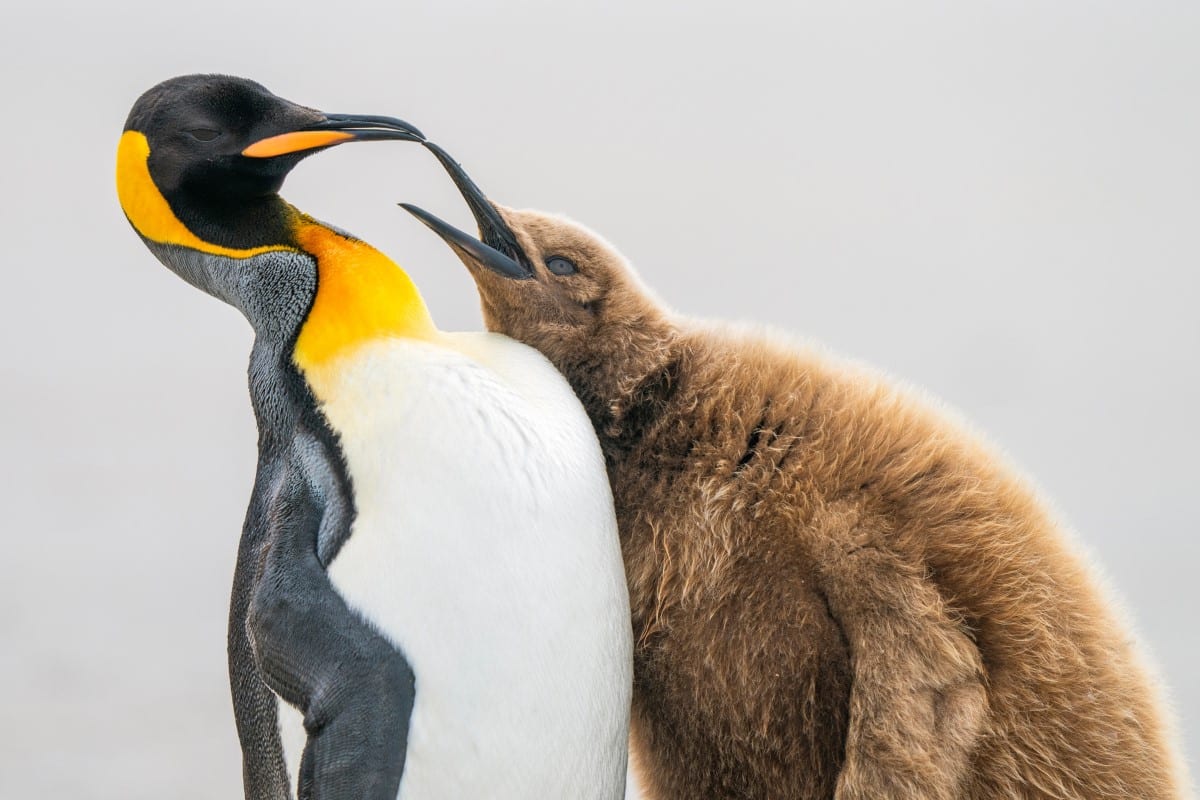
“More Fish Please!” by Levi Fitze, Switzerland. Silver Award Category: Comedy Bird.
Species: King Penguin Aptenodytes patagonicus.
Location: Saunders Island, Falkland Islands (Malvinas).
“When observing King Penguins, I was struck by how their behavior sometimes resembles that of humans. This juvenile constantly begged until the annoyed adult walked away. However, the fact that the juvenile was more massive than the adult suggests good parenting overall.”
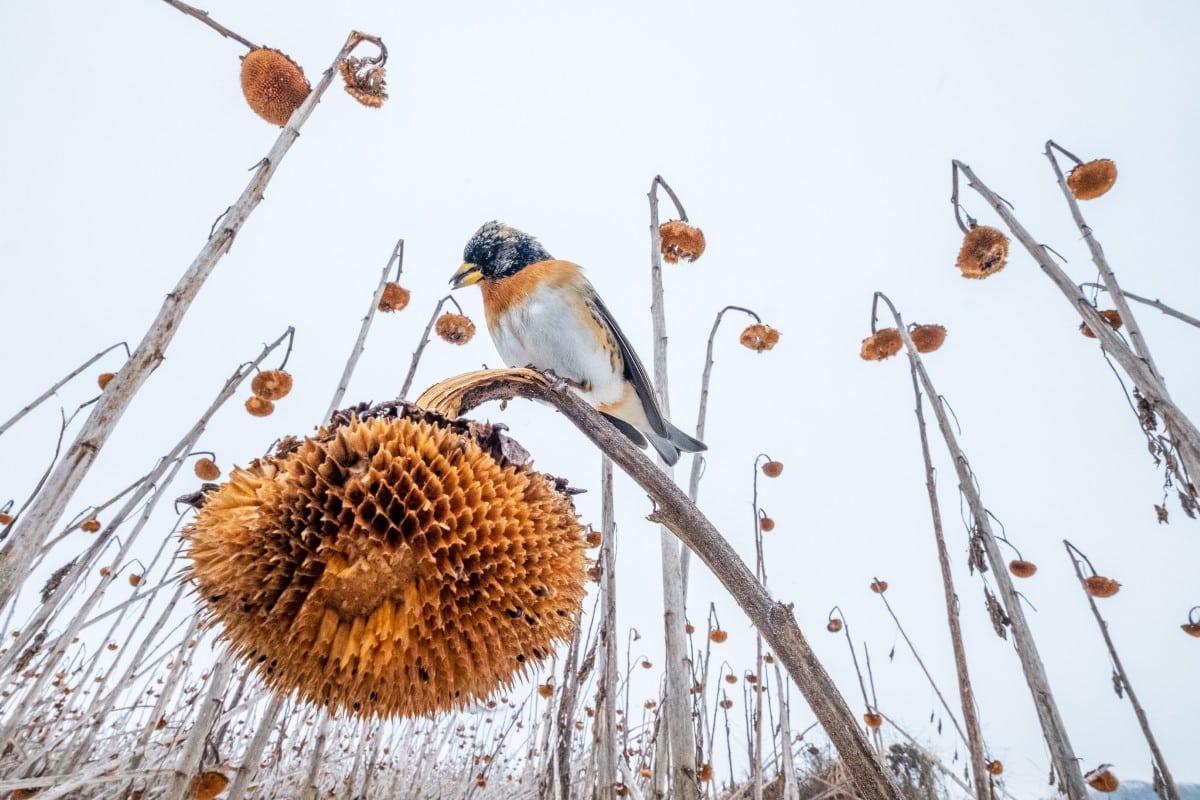
“Sunflower Paradise” by Mateusz Piesiak, Poland. Gold Award Category: Birds in the Environment.
Species: Brambling Fringilla montifringilla.
Location: Lower Silesia, Poland.
“Flooding meant that a field of sunflowers could not be harvested, and thousands of birds, including Greenfinches (Chloris chloris), Goldfinches (Carduelis carduelis) and Bramblings, flocked to it in winter. Despite their colorful plumage making them easy targets, when foraging, their colors blend with the surroundings, making them hard for predators to spot. Using a wide-angle lens masked with snow and dried sunflowers, I photographed a flock of Bramblings from their perspective, with one perched in front of my camera.”
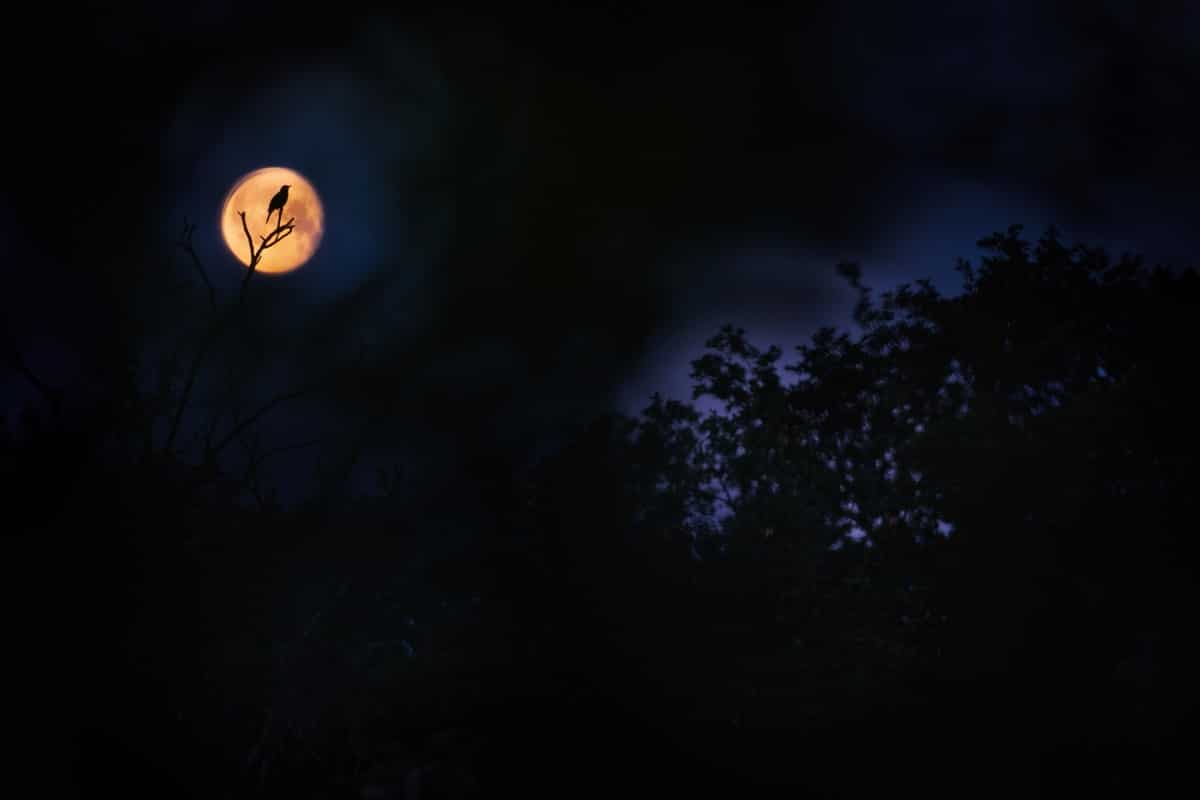
“Blue Hour and Red Moon” by Anton Trexler, Germany. Young Bird Photographer of the Year and Gold Award Category: 15–17 years.
Species: Eurasian Blackbird Turdus merula.
Location: Mainz, Germany.
“Blackbird singing in the dead of night. Blue atmosphere and red moon. Getting up before sunrise allows you to experience the magical awakening of animals. The blackbird is one of the first animals to awaken.”
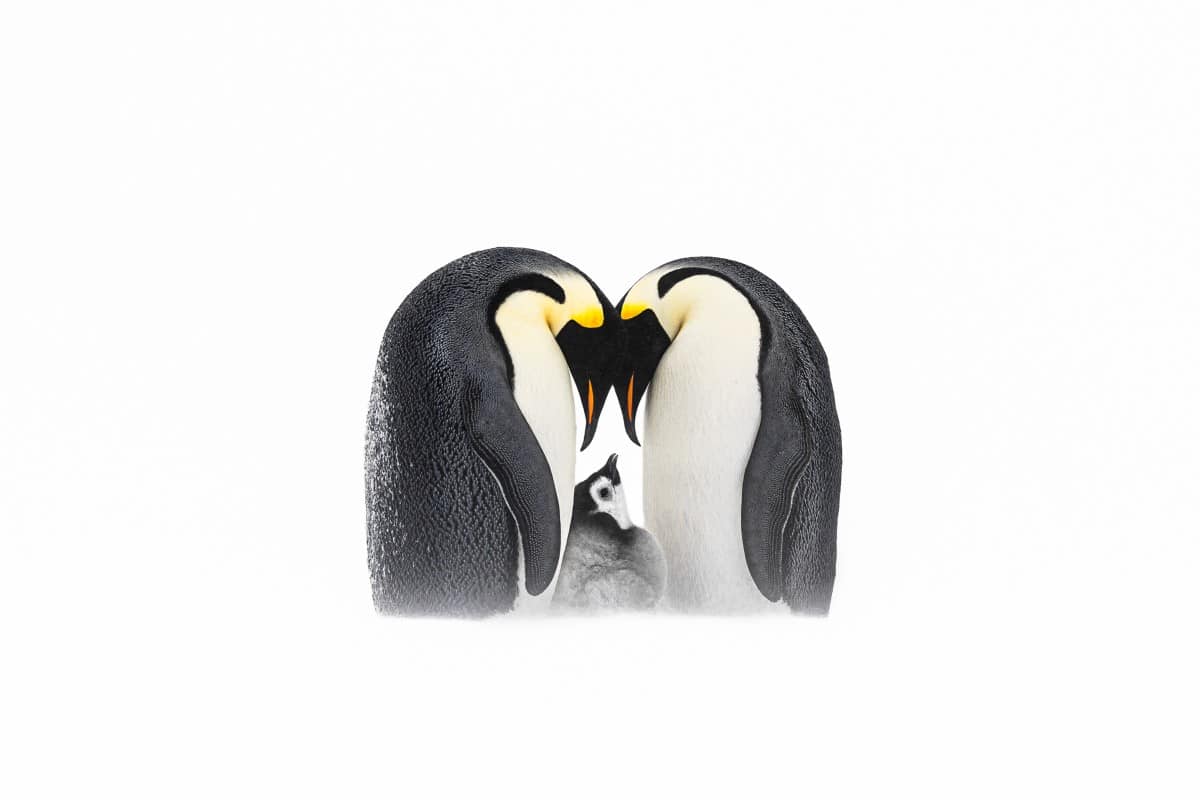
“Parenting Goals” by Thomas Vijayan,
Canada. Silver Award Category: Best Portrait.
Species: Emperor Penguin Aptenodytes forsteri.
Location: Antarctica.
“Before capturing this image, I spent two days observing these penguins, lying flat on the ice to avoid scaring them. Waiting for the chick to appear, I finally got this touching shot of parental love. I trekked eight hours a day on soft snow to reach this colony and even made friends with some penguins.”
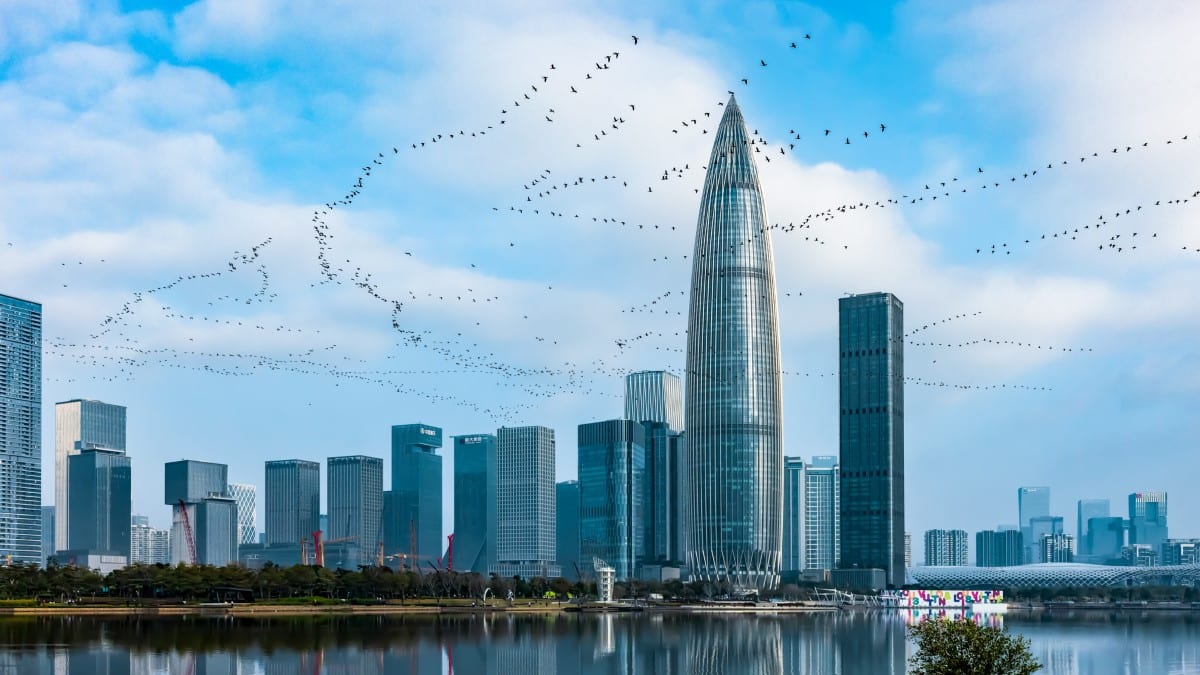
“Urban Paradise” by Xiaoke Wang, China. Silver Award Category: Urban Birds.
Species: Great Cormorant Phalacrocorax carbo.
Location: Shenzhen, China.
“From October to March, Shenzhen is a wintering ground for over 100,000 migratory birds. In January 2022, tens of thousands of Great Cormorants were spotted flying over Talent Park, adding to the area’s avian diversity.”
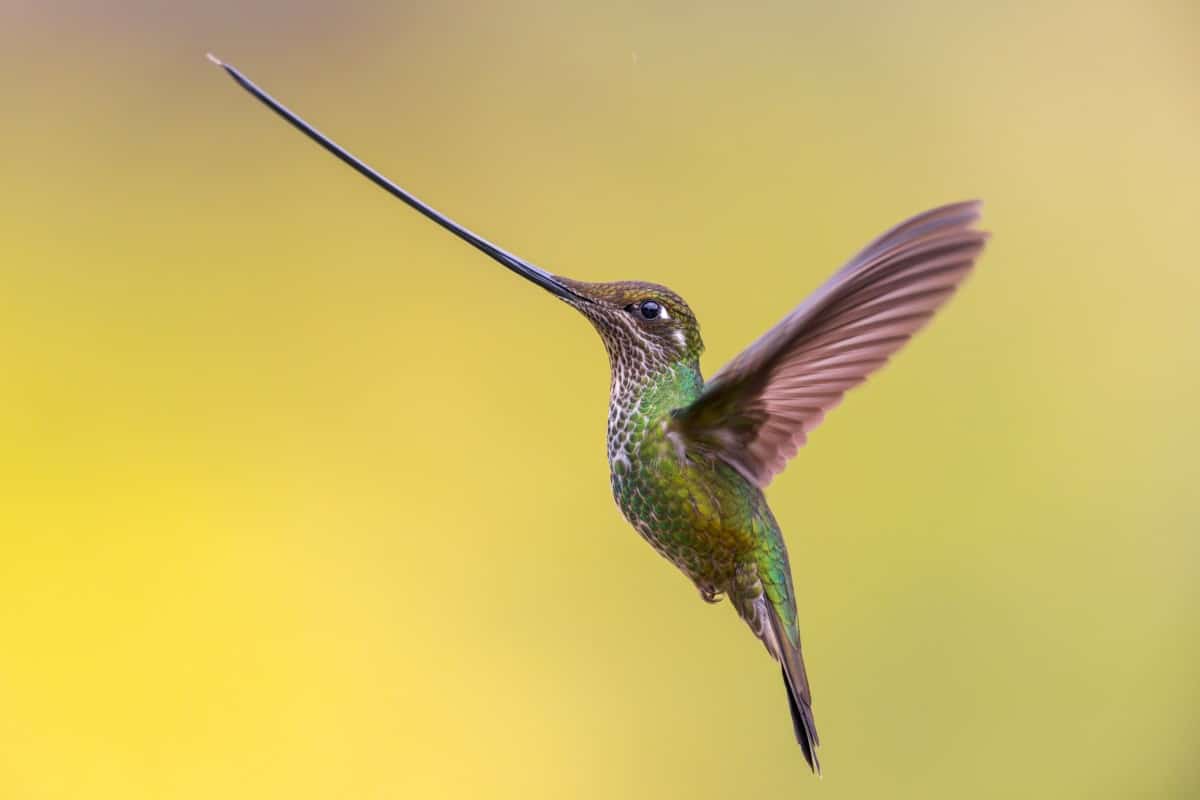
“Flying Sword” by Rafael Armada, Spain. Gold Award Category: Birds in Flight.
Species: Sword-billed Hummingbird Ensifera ensifera.
Location: Bogotá, Colombia.
“The Sword-billed Hummingbird, common in the Andean forests, has the world’s longest bill relative to its size. This bird’s unique bill, adapted to feed on flowers with long corollas, makes it a vital pollinator, as bees and butterflies can’t reach the nectar and so don’t pollinate these plants. This image captures the bird approaching a feeder, with natural backgrounds and lighting.”
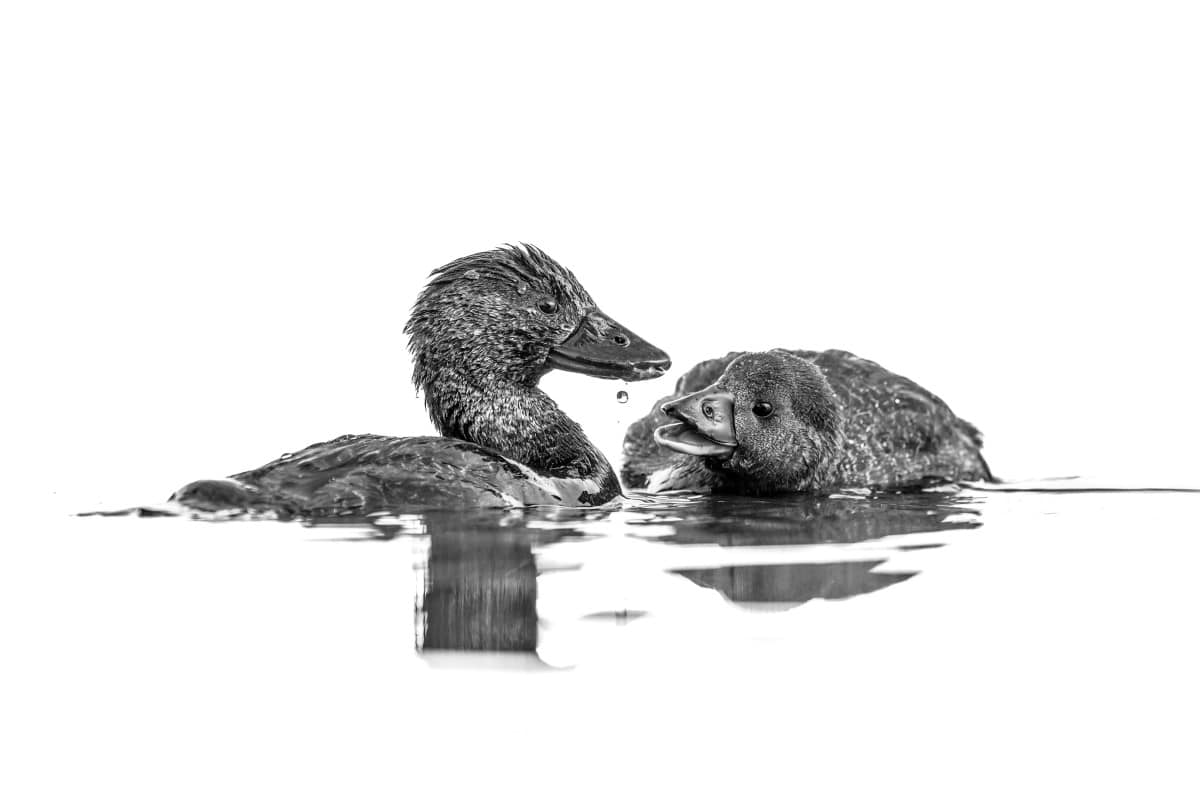
“Fascinating Droplet” by Jason Moore, Australia. Gold Award Category: Black and White.
Species: Musk Duck Biziura lobata.
Location: Perth, Australia.
“A young Musk Duck seems mesmerized by a drop of water falling from its mother’s mouth. Of course, it’s actually interested in the morsel of food that she has in her bill. Their coloration may be drab, but they more than make up for it with their beautiful expressions and fascinating displays.”
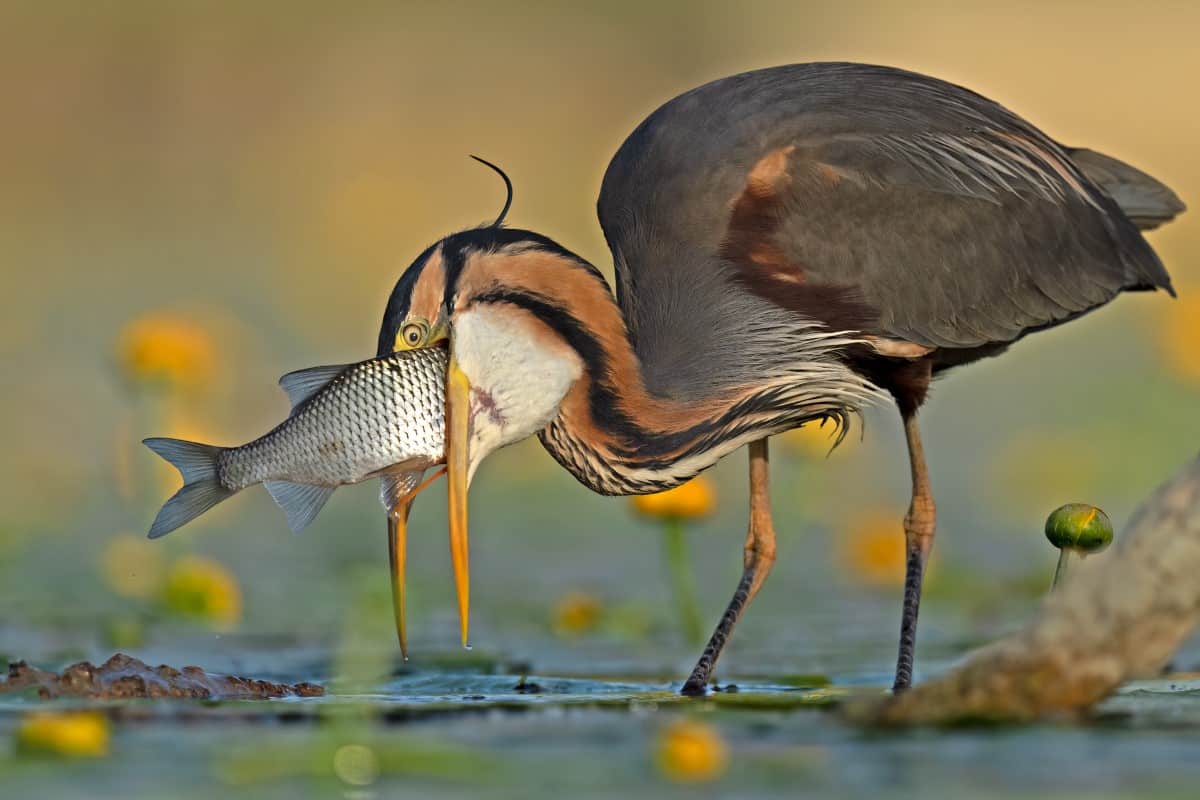
“No Way Out” by Antonio Aguti, Italy. Gold Award Category: Comedy Bird Photo.
Species: Purple Heron Ardea purpurea.
Location: Lake Chiusi, Italy.
“The Purple Heron is a migratory bird that nests in the lake basins of the Italian Peninsula and feeds mainly on fish, although it also preys on mice, snakes, toads, and other creatures. In this shot, the heron caught a large Crucian Carp (Carassius carassius) and voraciously swallowed it after several attempts to turn the fish onto its side.”
Over 20,000 images were entered into the contest.
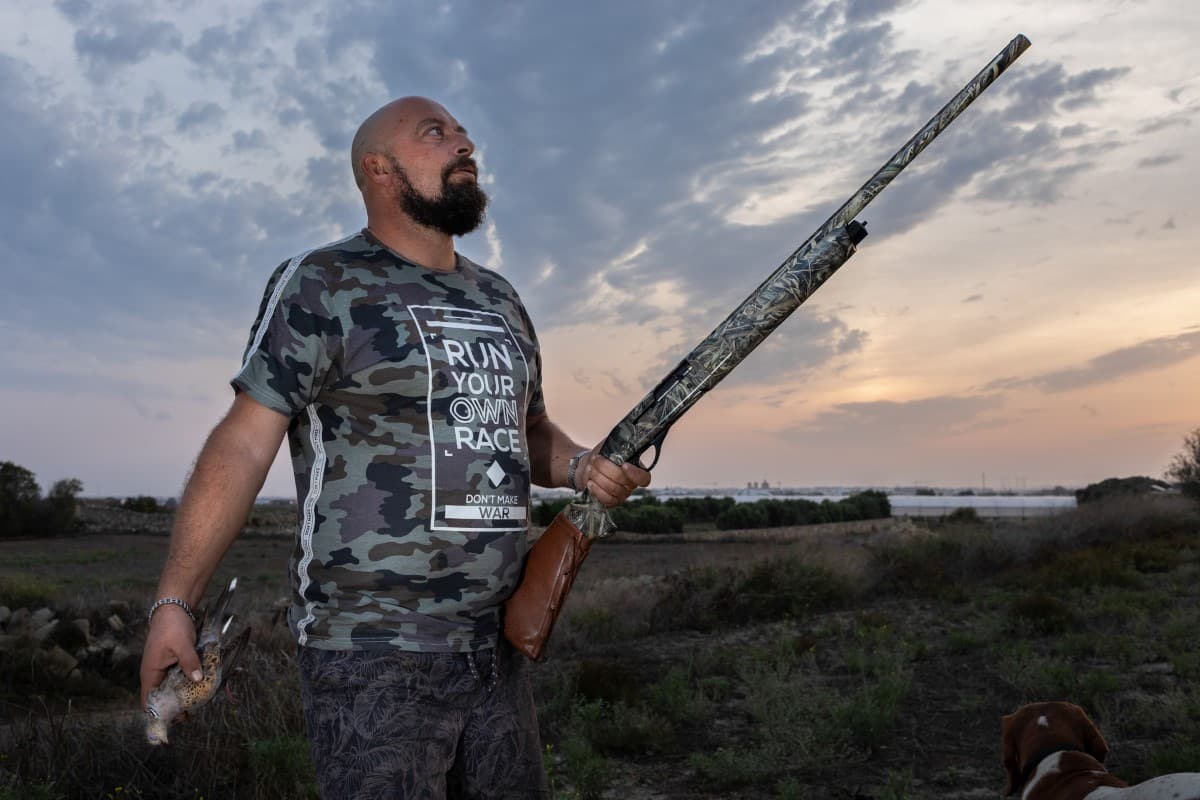
“Don't Make War” by Ewan Heath-Flynn, United Kingdom. Gold Award Category: Conservation (Single
Image).
Species: European Turtle Dove Streptopelia turtur.
Location: Southern Malta.
“A Maltese hunter stands proud, having legally shot a European Turtle Dove, a prized quarry on the island. European Union legislation bans the hunting of Turtle Doves in the breeding season. Nevertheless, across the Mediterranean, an estimated 0.34–0.87 million are killed every year. Generations of Maltese have hunted this species on migration; a few continue to hunt and follow tradition. In 2017, Malta introduced a spring hunting moratorium, which left some hunters feeling their ‘traditional’ way of life had been spoilt. Unfortunately, the ban was lifted in 2022, allowing European Turtle Doves to be killed once again. The decision has the potential to dramatically impact and further damage this beautiful bird’s chances of survival and drive it further towards extinction. BirdLife International and their partner BirdLife Malta both condemn the hunting.”
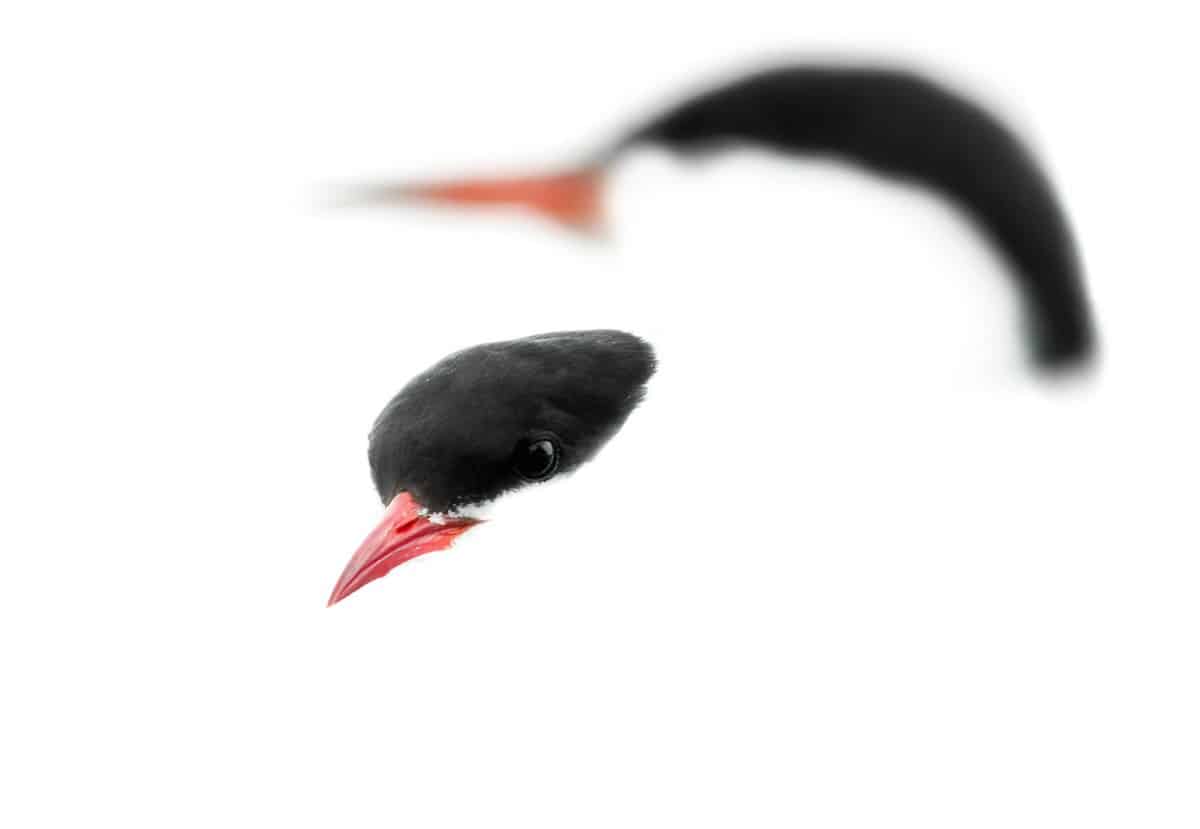
“High-Key Terns” by Harry Sedin, Sweden. Gold Award Category: 12–14 years.
Species: Arctic Tern Sterna paradisaea and Common Tern Sterna hirundo.
Location: Örnsköldsvik, Sweden.
“In a small inlet in Örnsköldsvik, there are terns everywhere during summer. So, one afternoon on an overcast day, I headed down to the water with the goal of photographing terns in flight. Instead of that, I ended up photographing an Arctic and Common Tern perched together on a railing. By utilizing the white of their bodies, the overcast weather, and the bright reflections in the water, I captured a high-key image of the two terns.”
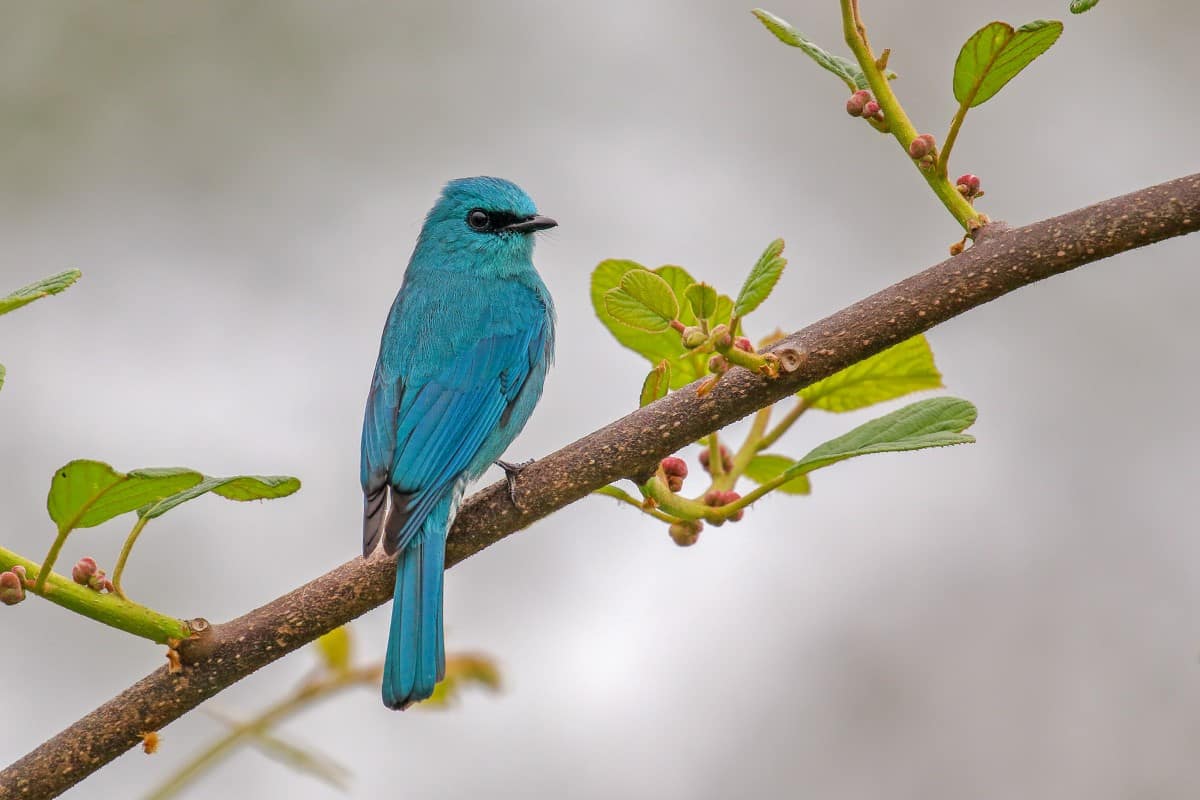
“Verditer Flycatcher” by Arko Saha, India. Gold Award Category: 11 and Under.
Species: Verditer Flycatcher Eumyias thalassinus.
Location: Pelling, Sikkim, India.
“Pelling is one of the most beautiful hill stations in India. I observed so many birds when I visited the area. I snapped this very colorful bird in a garden near our hotel. The extremely vibrant blue color makes this bird so beautiful.”
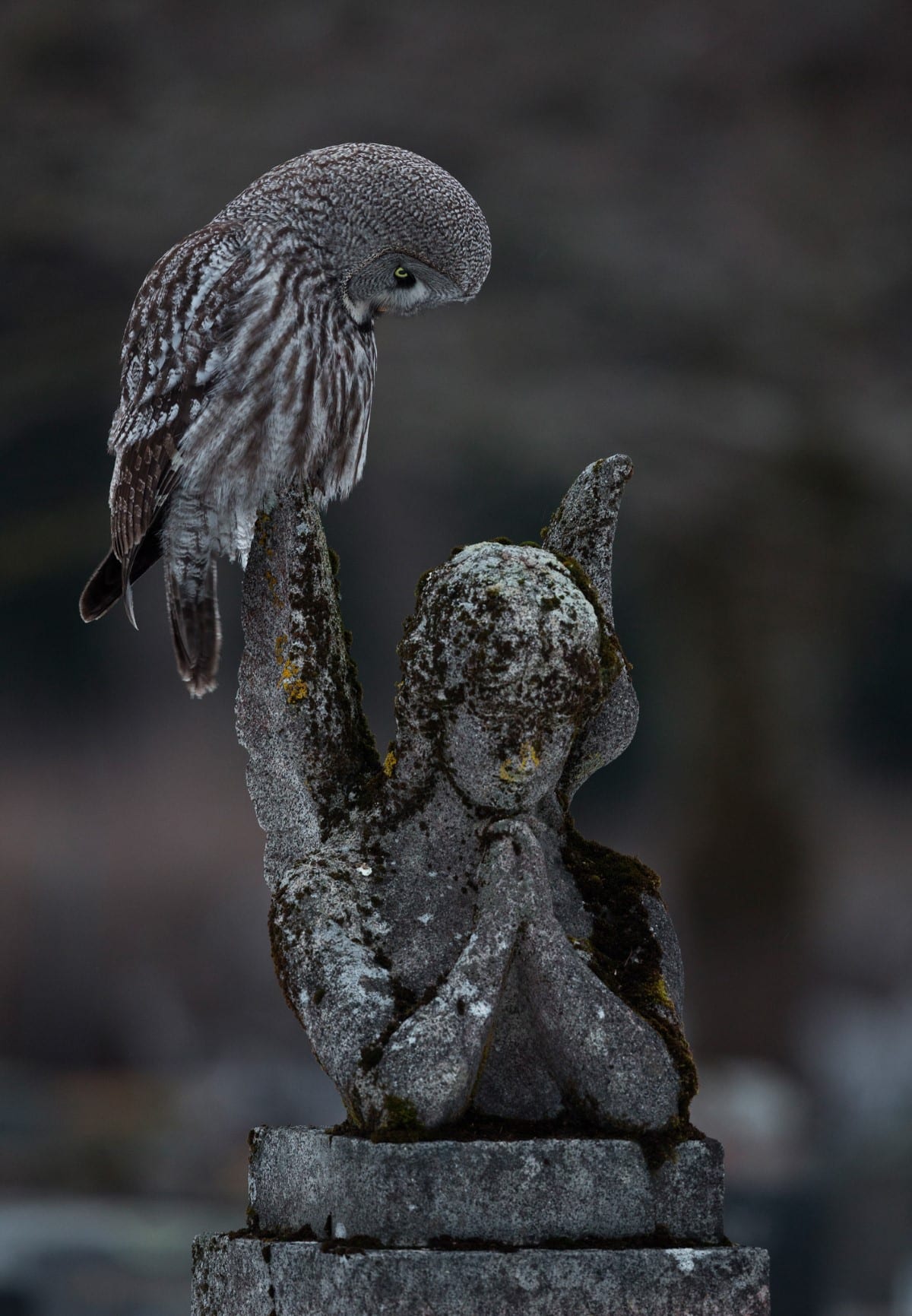
“A Moment of Prayer” by Arto Leppänen, Finland. Gold Award Category: Urban Birds.
Species: Great Grey Owl Strix nebulosa.
Location: Helsinki, Finland.
“During winter migration, owls from northern Finland often head to the south where they can find more food due to less snow. This Great Grey Owl chose a cemetery with abundant voles as its hunting ground. While hunting, the owl would often stop on tombstones or other structures to observe the area. Keeping a safe distance, I followed the owl and managed to capture a fleeting moment when it landed briefly on a beautiful angel statue.”
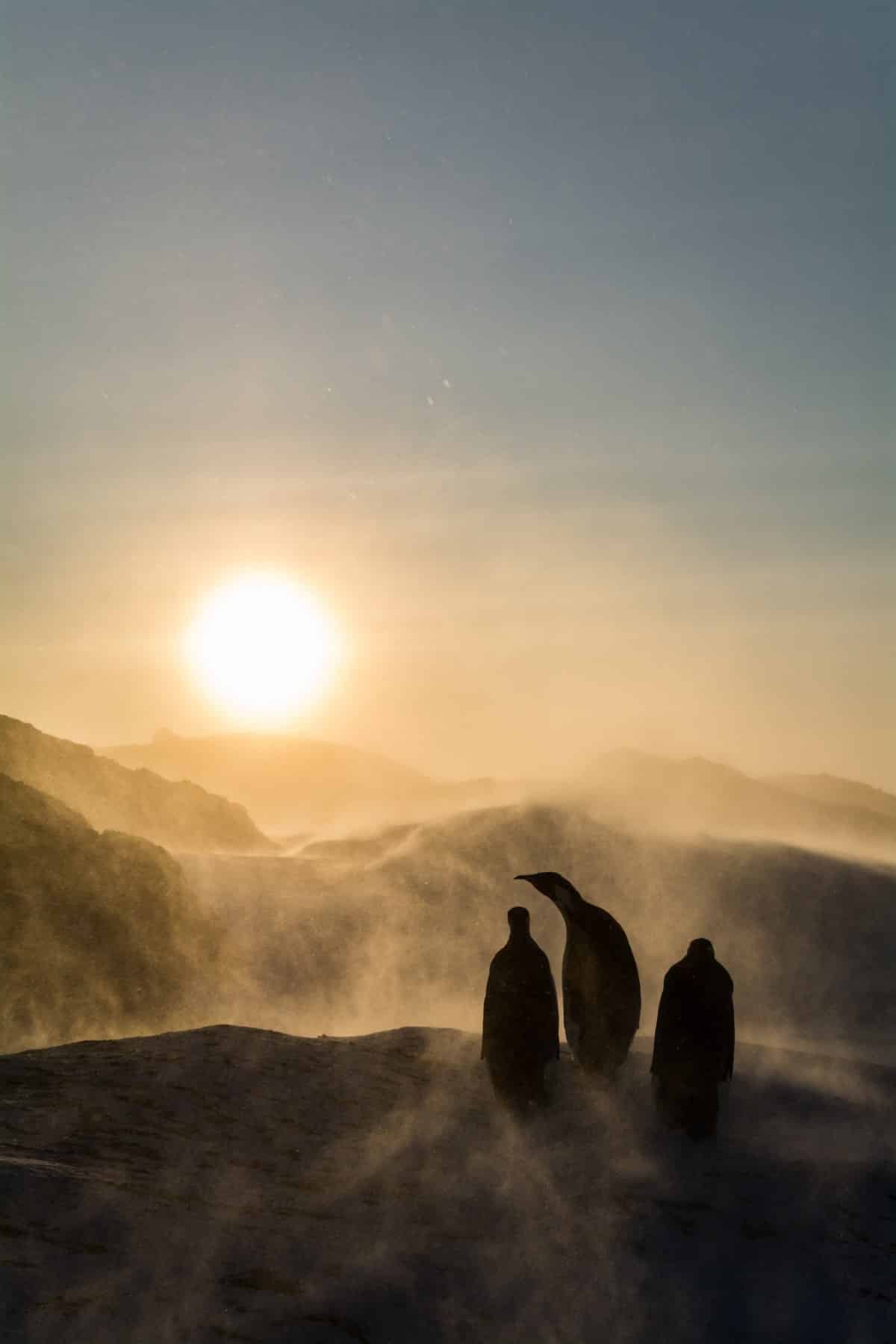
“The Dance of the Shadows” by Clément
Cornec, France. Gold Award Category: Birds in the Environment.
Species: Emperor Penguin Aptenodytes forsteri.
Location: Adélie Land, Antarctica.
“The Emperor Penguin breeds during winter in Antarctica, the coldest environment on Earth. It endures temperatures as low as -40°C during the long polar nights and 250km/h blizzards. Adaptations allow it to maintain body temperature and conserve energy.”
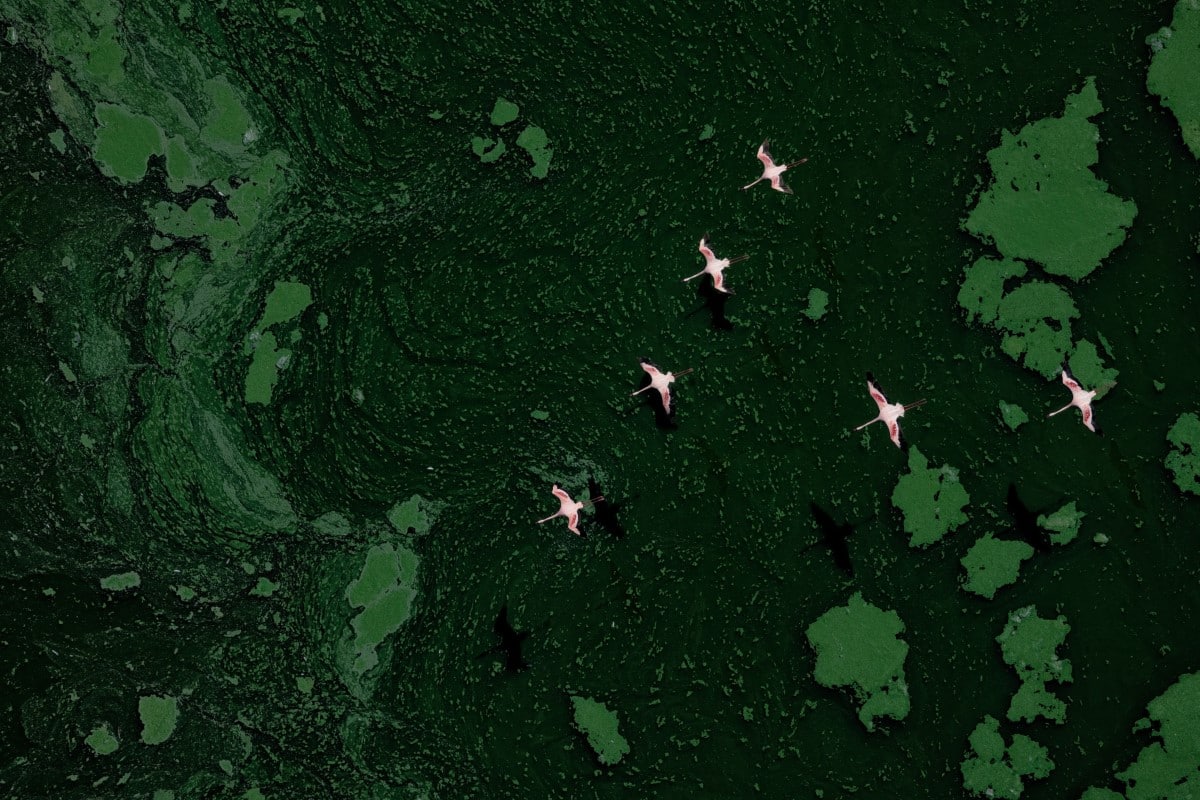
“Green Planet Flamingos” by Paul
Mckenzie, Ireland. Silver Award Category: Birds in Flight.
Species: Lesser Flamingo Phoeniconaias minor.
Location: Lake Bogoria, Kenya.
“This aerial photograph captures a flock of Lesser Flamingos in flight over a vast and concentrated bloom of cyanobacteria (sometimes called blue-green algae), their staple food source. The photo was taken from the open doors of a light aircraft.”
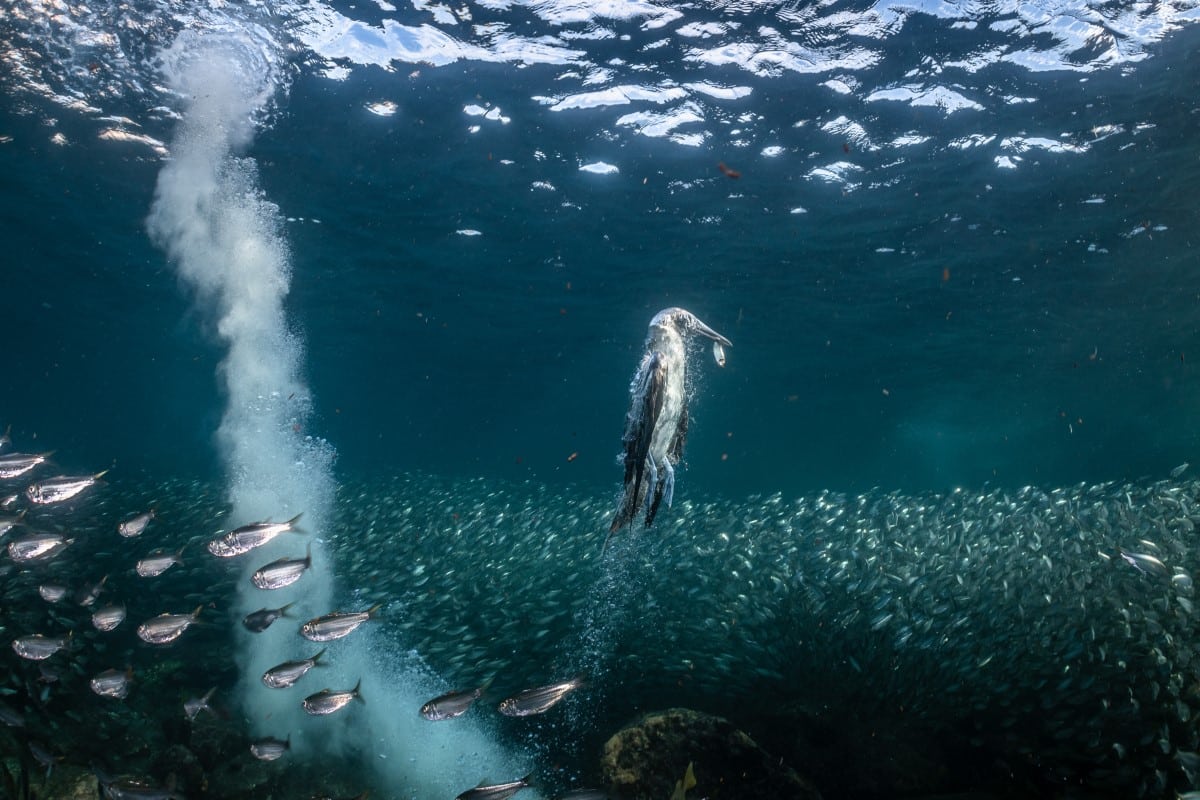
“Blue-Footed Fishing Dive” by Henley Spiers, United Kingdom. Silver Award Category: Bird Behavior.
Species: Blue-footed Booby Sula nebouxii.
Location: Los Islotes, Baja California Sur, Mexico.
“In early autumn, a sardine shoal at Los Islotes attracted seabird predators. Amid the shoal, I waited patiently for
the elusive shot of a Blue-footed Booby rising with a sardine in its beak. Finally, a crash came down close to me, and I instinctively captured the moment.”
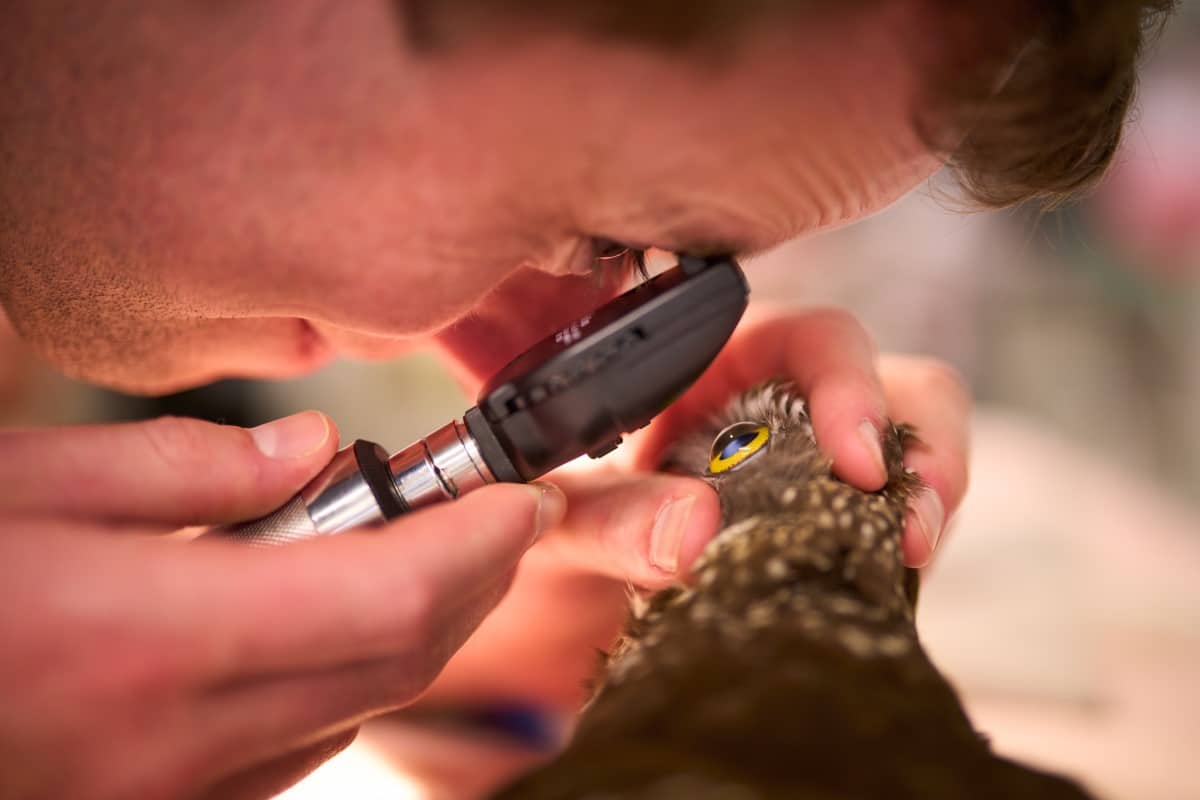
“Seeing Eye to Eye” by Michael Eastwell, United Kingdom. Silver Award Category: Conservation (Single Image).
Species: Southern Boobook Ninox boobook.
Location: Bonorong Wildlife Hospital,
Brighton, Tasmania, Australia.
“Southern Boobooks, the smallest Australian owl species, are often brought to veterinary hospitals after car accidents. Their large, outward-projecting eyes adapted for low-light hunting make them vulnerable to injury. In this image, Dr. Luke Gregory is examining an owl named ‘Rocket,’ focusing on the posterior eye, where injuries can be less visible.”
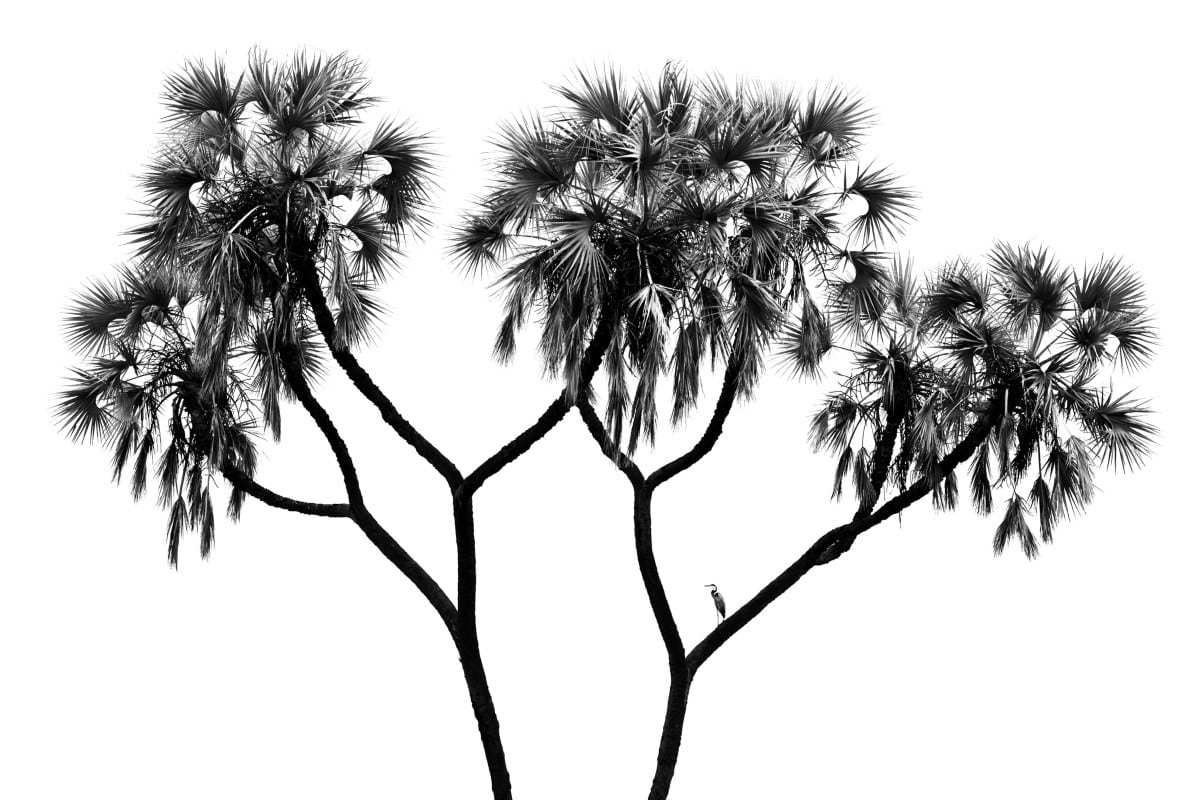
“The Heron in the Palms” by Yaron Schmid, Israel. Silver Award Category: Black and White.
Species: Black-headed Heron Ardea melanocephala.
Location: Samburu National Reserve,
Kenya.
“Among Samburu’s most distinctive features are its Doum Palms (Hyphaene thebaica). While moving away from the river, I noticed a Black-headed Heron perched on one of the palm tree branches. I asked the guide to stop and captured a minimalistic image using a smaller lens.”
Bird Photographer of the Year: Website | Facebook | Instagram
My Modern Met granted permission to feature photos by BPOTY.
Related Articles:
People Can’t Believe This Photo of a Bird Isn’t Photoshopped or AI-Generated
Winners of the 2023 Audubon Photography Awards Celebrate the Beauty of Birds
Incredible Winning Photos From the 2021 Bird Photographer of the Year Contest
Winners of the 2023 BigPicture Natural World Photography Competition Embrace Our World’s Biodiversity
READ: Peregrine Falcon Fiercely Defending Her Nest Wins Bird Photography Competition
0 Commentaires